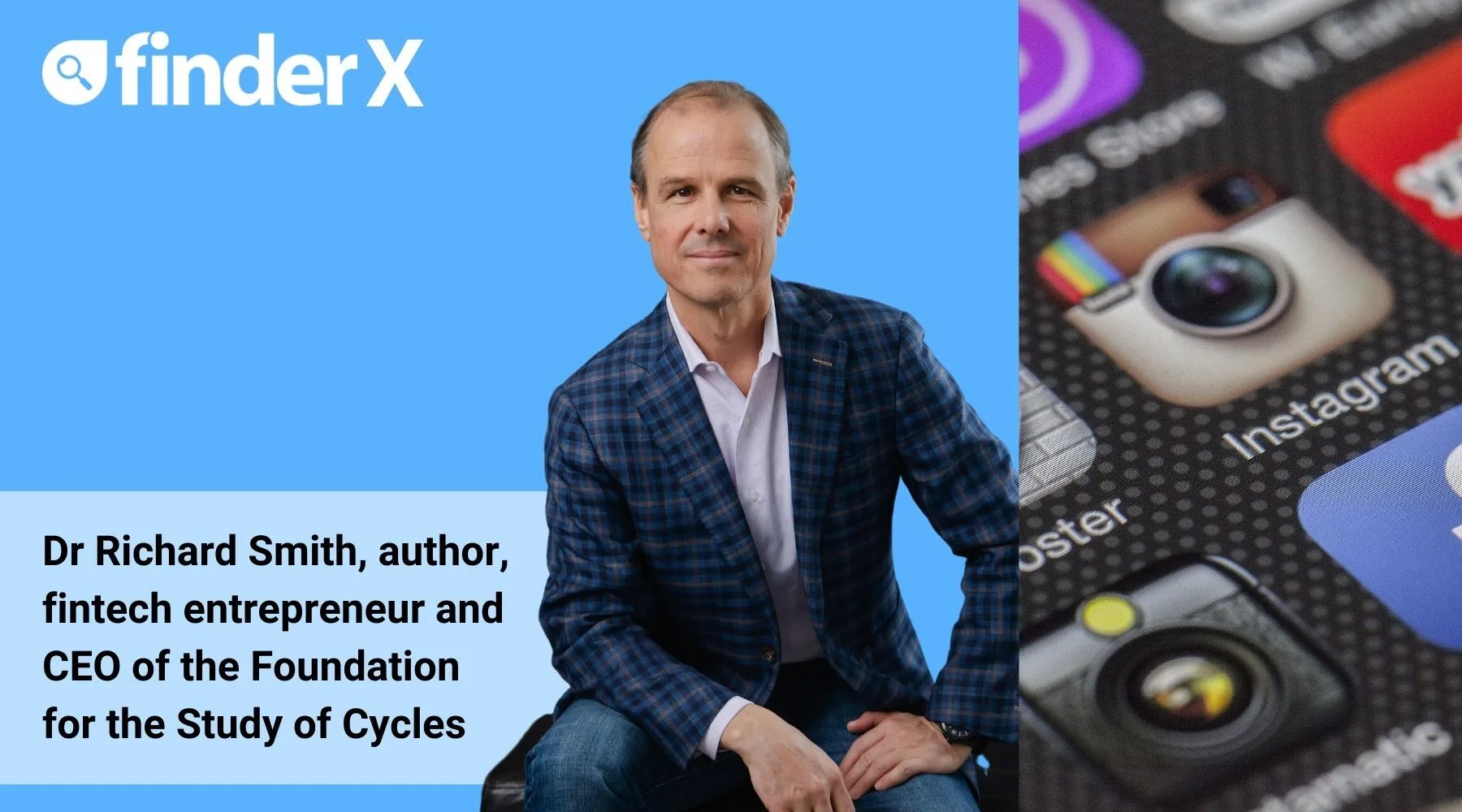The influence of social media on investing and creating wealth

What can independent investors learn from the revelations of Facebook whistleblower Frances Haugen?
A lot, it turns out, and it has nothing to do with whether Facebook is a buy, sell or hold.
In September 2021 The Wall Street Journal produced a series of articles called The Facebook Files. These articles were based on explosive internal research documents from Facebook provided by whistleblower Frances Haugen, who then followed up The Facebook Files exposé with highly compelling testimony to the U.S. Congress.
What Ms Haugen brought forth from the bowels of Facebook wasn't pretty and has led to collective soul searching about the hidden costs of social media.
That fact, however, should not distract us from the conflict of interest Facebook has with the well-being of its users. This is increasingly a problem for large swaths of our global economy and it is particularly problematic for the digital economy.
In turn, it can have an impact on investments.
To understand how, let's start by reviewing some of the key takeaways from the recent focus on Facebook.
On 5 November, The Journal wrote:
Facebook researchers have found that 1 in 8 users report engaging in compulsive use of social media that impacts their sleep, work, parenting or relationships, according to documents reviewed by The Wall Street Journal.
This equals 360 million people globally, more than the entire US population.
I know it can be hard to take in important but uncomfortable findings like these but here's more from The Journal on the Facebook-induced problems impacting 360 million people:
[Problems] include a loss of productivity when people stop completing tasks in their lives to check Facebook frequently, a loss of sleep when they stay up late scrolling through the app and the degradation of in-person relationships when people replace time together with time online. In some cases, "parents focused more on FB than caring for or bonding with their children," the researchers wrote.
Are you the customer or the product?
My contention is that Facebook isn't the only business that is profiting heavily while impairing the well-being of millions of its users. Facebook is just the "face" of the problem.
For most businesses that operate like Facebook, the user is not the customer. The user is the product, and the services are "free". Facebook's real customers are its advertisers.
Here, for example, is a recent disclosure from fellow "user-as-product" service Robinhood: "The way we make money creates conflicts with your interest." Wow. That's clearly and simply stated.
It goes on to say, "Robinhood earns revenue from your trade activity and therefore has a monetary incentive for you to trade more." A tip of the hat to the SEC (US Securities and Exchange Commission) for inspiring such clarity from the "HOOD".
While Robinhood may be the poster child of a retail finance business model that is in open conflict with the interests of its users, this phenomenon is not new to retail finance. In fact, online investing is one sector of the global economy that is highly susceptible to conflicts of interest between users and the businesses that serve them.
Having gotten started in the markets myself in 1998, I remember when online trading first came into existence.
Based on my personal experience, as well as the feedback I've received from tens of thousands of other investors I've worked with, I would go so far as to say that online retail finance is one of the industries that pioneered a business model that openly undermines good outcomes for its users (which could be you).
The cycle of addiction
These businesses all profit from capturing our attention and then keeping us "stuck" to their services through content and media. In short, they profit from addiction.
Addiction is something that, for better or worse, we understand much better today than we did 20 years ago.
Of course, "we the people" come to understand things much later than some other folks who turn out to be ahead of their time. Here's how former Facebook president and co-founder Sean Parker put it to Axios back in 2017:
…we needed to sort of give you a little dopamine hit every once in a while because someone liked or commented on a photo or a post or whatever... It's a social validation feedback loop... You're exploiting a vulnerability in human psychology... [The inventors] understood this, consciously, and we did it anyway.
Mr. Parker was Facebook's president from 2004 to 2005, when Facebook's first foundations were being developed.
The link between dopamine and investing
 Dr. Anna Lembke is a professor of psychiatry at Stanford University School of Medicine and chief of the Stanford Addiction Medicine Dual Diagnosis Clinic. She is also the author of a recent book, Dopamine Nation. Some of the things that I learned from Dr. Lembke's book that are highly cautionary to aspiring investors include:
Dr. Anna Lembke is a professor of psychiatry at Stanford University School of Medicine and chief of the Stanford Addiction Medicine Dual Diagnosis Clinic. She is also the author of a recent book, Dopamine Nation. Some of the things that I learned from Dr. Lembke's book that are highly cautionary to aspiring investors include:
The more dopamine in the brain's pathway, the more addictive the experience. Per Dr. Lembke, "Scientists rely on dopamine as a kind of universal currency for measuring the addictive potential of any experience."
Dopamine isn't just released upon receiving a reward. It's also released in anticipation of a reward. Sometimes acute losses in the market can paradoxically create an even greater anticipation of reward, we can get our biggest dopamine hits while we're losing!
Dopamine levels are increased when we are in complex environments that are "enriched, stimulating and novel" and require extra learning. Sounds like capital markets to me.
In short, capital markets are the near perfect environment for building businesses that profit from addiction-based business models that rely on dopamine drips.
How do institutional investors avoid the addiction?
Institutional investors have systems that help them to resist these addictive aspects of investing and trading. They're called risk management departments. For most retail investors and traders, however, risk management is completely absent from their decision-making tool kit.
There's a reason for that. Good risk management undermines the retail finance business models that, as Robinhood put it, "earns revenue from your trade activity and therefore has a monetary incentive for you to trade more."
For most people, good risk management means that you will trade less… and you will invest more. That is in conflict with Robinhood's "incentive".
Why? Risk management is all about aligning your expectations with the reality of market history.
Retail finance, on the other hand, is incentivised to create unrealistic performance expectations that will keep you coming back for more. Remember, even when you lose money, you're likely experiencing a dopamine drip in anticipation of winning back all you lost and maybe even more! Dopamine when you're winning and dopamine when you're losing. Simply wicked.
I remember this vividly myself from way back in March of 2000.

I was up nearly 300% in my then TD Waterhouse brokerage account. My initial $10,000 investment (more or less my life savings at the time) was now showing on my screen to be worth $40,000 in just one year. Then March 2000 hit, and suddenly my $40,000 very quickly turned into $25,000.
I said to myself, "Hey, let's not get greedy here. I'll get out when it gets back to $30,000." In a couple of days my account was back to $30,000… but I didn't get out. Instead, I said, "That was quick. Maybe it can get back to $35,000 or even to my all-time high… or higher. Why not?"
I didn't know it at the time, but I was caught in a classic dopamine trap of "anticipating rewards". It wasn't long until my account was in danger of falling below my original $10,000 investment. I pulled the plug, licked my wounds and consoled myself that at least I had escaped the carnage with my initial capital intact.
The dopamine-driven, user-as-product, casino-style business model has only gotten more refined and more intense since those quaint old dot-com days. Now we have social media, cryptocurrencies, meme-stocks, NFTs and confetti to up the ante.
The song remains the same. But now that we know the tune, we have an opportunity to do something about it. That opportunity is to educate ourselves about the patterns of media addiction and arm ourselves with risk-management tools.
Trust me, what you really want are better outcomes. Better outcomes are what you will get once you start to understand that successful investing is all about good risk management, and you're not going to get it from your retail broker-dealer.
Richard Smith is chairman and executive director of the Foundation for the Study of Cycles, a nonprofit that studies recurring patterns in economics, social sciences and nature.
Disclaimer: The views and opinions expressed in this article (which may be subject to change without notice) are solely those of the author and do not necessarily reflect those of Finder and its employees. The information contained in this article is not intended to be and does not constitute financial advice, investment advice, trading advice or any other advice or recommendation of any sort. Neither the author nor Finder has taken into account your personal circumstances. You should seek professional advice before making any further decisions based on this information.
Read more Finder X columns
-
All the big savings account interest rate rises: ING, AMP, Westpac + more
6 Feb 2026 |
-
Australian credit card debt soars 10% in a year: How can you escape the trap?
6 Feb 2026 |
-
4 cashback home loan offers to ease the pain of RBA rate hike
4 Feb 2026 |
-
Finder’s RBA Survey: Easing cycle ends as RBA delivers first rate hike since 2023
4 Feb 2026 |
-
Ubank Save is increasing its bonus rate up to 5.35% p.a.
3 Feb 2026 |
Ask a question
